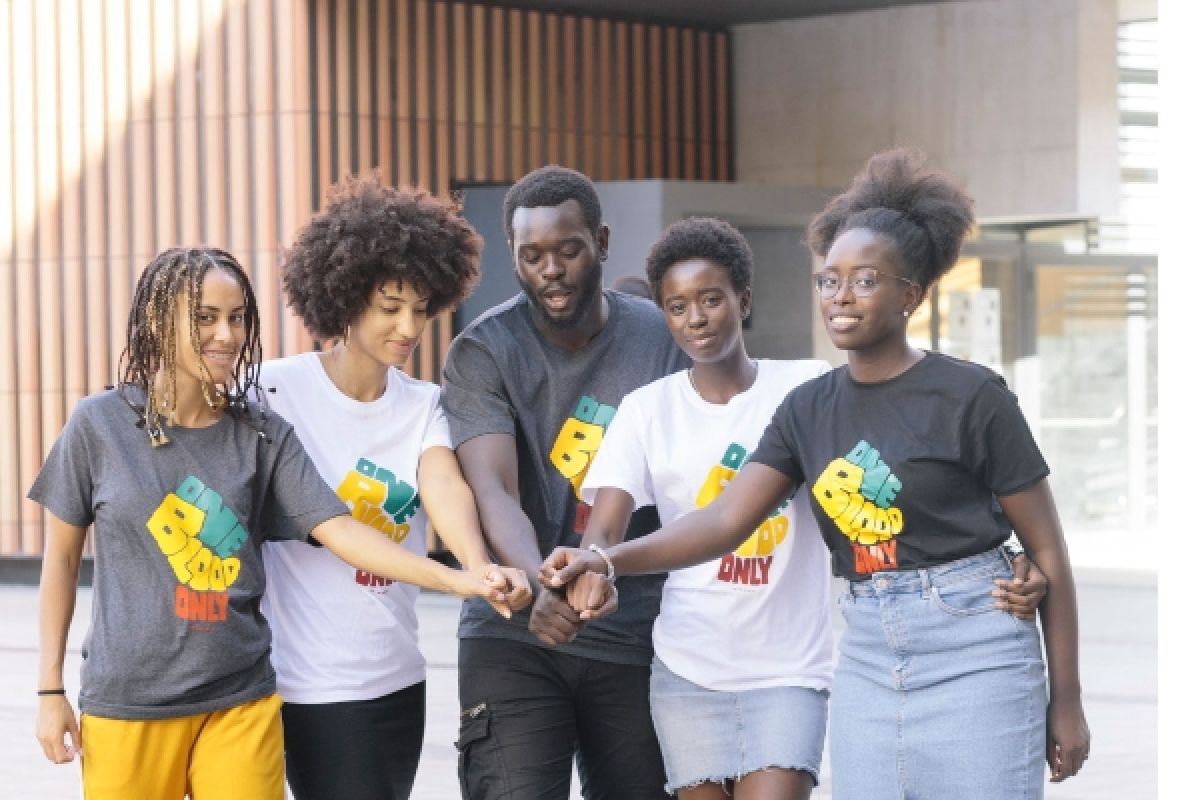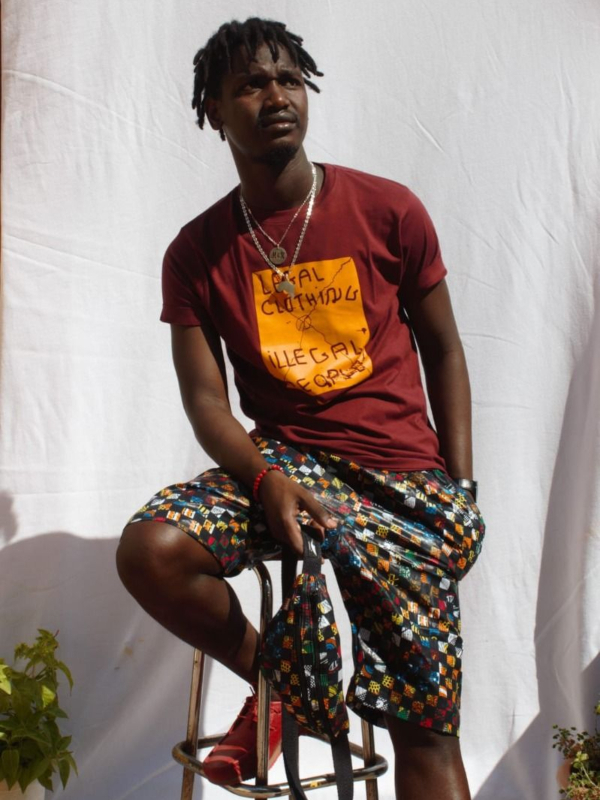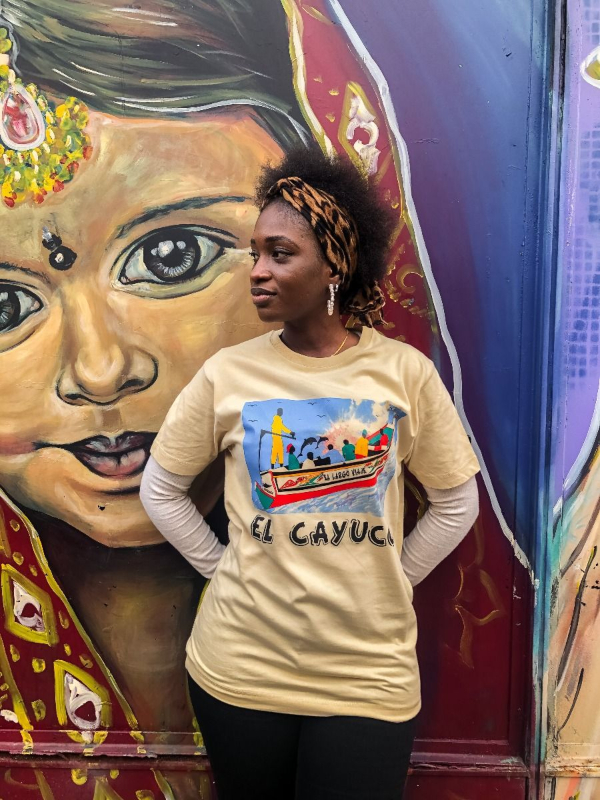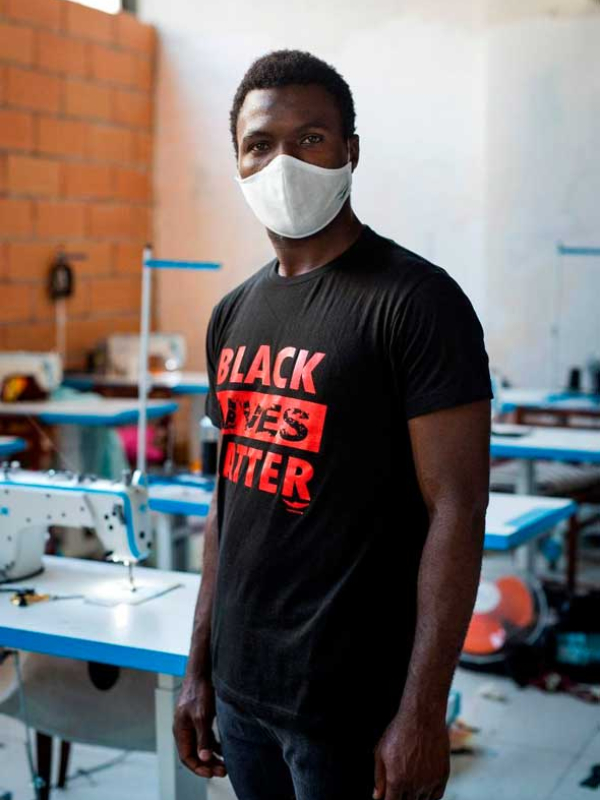
Judy Cogan speaks to the illegal African migrants who've gone from selling Chinese-made knockoffs on the streets of Barcelona to opening their own streetwear boutiques to secure Spanish residency.
There was a time pre-pandemic that you’d walk down the tree-lined La Rambla in central Barcelona and see vendors selling counterfeit designer goods.
Up to 400 ‘manteros’ – named after the ‘manta’ (blanket) on which they lay their wares – scratched a living selling knock-off handbags to tourists along the Spanish city’s most famous thoroughfare.
Manteros are mostly African men who made the perilous journey across the Mediterranean from countries such as Senegal, Sierra Leone and Mali in the hope of building a new life in Spain.
But landing a regular job without the correct papers is almost impossible, so many turn to street-selling to make ends meet, even though they’re often moved on or arrested.
In 2017, a collective of vendors came up with a way to legitimise their businesses with several of them coming together to launch their own fashion label, under the name Top Manta, in an attempt to leave the forgeries behind and establish a new positive identity.
‘Working to survive isn’t a crime and our only dream is to work legally,’ said Aziz Faye, a spokesperson for Top Manta and the Street Sellers Union, which was set up five years ago to help the manteros find a legitimate role in society.
‘We chose the name Top Manta as we wanted to win back control of the name and show people that being a street seller doesn’t make us criminals.’
The label’s logo was carefully designed to set out their intention, proudly referencing its history by resembling a blanket, canoe and wave – the last ‘to symbolise our difficulties crossing the sea,’ explained Faye.
Top Manta kicked off with a range of trainers, produced in the same factories as the fake products had been, but with their own logo in place of Nike or Adidas. They sold in established local markets, rather than on street corners. Soon a social media drive helped create a buzz around the brand.
‘People wanted to buy Top Manta T-shirts before we had the resources to make them,’ said Faye.

Four years on, the label has its own standalone store and workshop in the touristy El Raval neighbourhood of Barcelona.
The 10-strong team host talks for local schools and universities and works hard designing, screen-printing and sewing — skills some of them learned back in Africa.
In December 2019, the brand won the GHR Foundation’s BridgeBuilder global innovation award and a share of the $1 million prize fund.
‘Our brand success comes down to the solidarity of people who have collaborated,’ said Faye humbly.
‘We’ve demonstrated that we can contribute to society and have new fashion projects underway to help continue our fight towards equality.’
Maria Elena, another senior member of the team agreed: ‘Before Top Manta we were considered uneducated people, without knowledge and capabilities. But we have worked hard to grow the business over four years, establish an online store, start a cooperative, and launch our own line of sneakers. All of this with the conviction that we can do it.’
A project called The Artist Series, involving a collaboration with 20 Spanish artists, who each customised a vintage denim jacket inspired by different vendors’ life stories, put Top Manta on the map garnering global media attention for the label.
The jackets were raffled off in 2019, raising €55,000 ($60,000) for the business of getting vendors off the streets and into legal work. Elena told NewsAfrica the main values at the core of the business are ‘responsibility and sustainability’ while working towards a low-waste economy and ‘better’ environment.
Since creating Top Manta the team has managed to launch a new product every year.
The latest drop of vegan-friendly trainers is called Ande Dem after a Senegalese expression that means ‘walking together’ in Wolof, the language spoken by most manteros (vendors), who are mainly from Senegal. Elena said it has been a long-time coming.
‘We’ve wanted to produce these sneakers from the very moment our brand was registered in 2017,’ she said.
‘But due to an initial lack of resources we produced T-shirts instead. Now with a focus on sustainable production methods, environmentally friendly materials and fair pay we’ve produced a collection to be proud of.’

The shoes were designed by Spanish architect and artist Sara de Ubieta, who’s local to Barcelona, and graphic designer Helga Juárez with input from 150 researchers.
Wanting to perform a ‘cultural fusion’ between Senegal and Barcelona the shoes combine African colours with a rugged sole that evokes the industrial side of Barcelona. In other words they are more suitable for working on a building site than for jogging, but can be used for both.
Elena explained: ‘We are always open to collaborate with creative people who believe in social justice, in equality, in inclusion, and in the rights of all’
In June, Sara de Ubieta posted a photograph of the finished trainer on her Instagram account, @sara_deubieta. She told her followers: ‘I have been able to help the @topmanta_bcn collective by designing these ethical shoes together with @helgajuarez. They have looked for a local and quality production, it has been a long and not easy job but we are very happy! It is also precious to know how the movement grows and how many people are joining to help.’
The brand has certainly come a long way since they started out sticking their logo on shoes imported from China. Now the trainers are made in Alicante, Spain, and Porto in Portugal.
This was a conscious decision to embrace responsible production with the aim of reviving the artisanal shoe industry in the Iberian Peninsula.
They have produced 400 pairs so far, retailing at €115 ($136) in the hope a limited run will also create a buzz among young people in the city.
They can be bought from the co-operative’s shop in Barcelona or online. Like their previous collections, profits will go back into the brand and help support manteros and their families.
Spain’s draconian Covid-19 response has been a disaster for street vendors in Barcelona. Their already precarious working lives were curtailed by lockdowns and the absence of tourists, their main customers.
Remarkably, Top Manta quickly adapted by switching their focus away from fashion and to the pandemic at hand. They began manufacturing medical gowns, caps and masks free of charge for local hospitals and schools working 12 hours shifts every day for four months.
Elena said: ‘During the Covid pandemic, we, the manteros, the street vendors, the same people that are persecuted by the police in the streets and fined for the only means they have to survive, demonstrated we are people capable of contributing to society.’
The team also set up a food bank and provided essential support to 400 manteros and their families who, due to their lack of legal status, could not receive any monetary support from the government.
Spanish laws condemn illegal immigrants to a marginal existence.

To obtain legal residency, non-EU immigrants must live in the country for three years, prove they have had a fixed address for at least a year, show they are learning the language and have a work contract for a minimum of one year.
For many these conditions are impossible to meet, but returning home is not a safe or feasible option either.
So far, by creating jobs through their fashion label, Top Manta has succeeded in getting 120 manteros legal residency and has found jobs for 25 of its members.
It also offers members of its co-operative training in textiles and screen-printing as well as language classes to better their chances of finding work and legal residency in Spain.
According to Elena the next task is to open a second store in Barcelona to ‘provide stronger visibility to the project,’ but attempts to expand haven’t exactly been plain sailing.
She said: ‘We have suffered what we call ‘real estate racism’ because some owners of commercial rental units refuse to do business with us when they find out we represent the manteros. Nevertheless, we continue to look for a site for the new store in a different location of the city in order to reach more customers and establish our administrative headquarters.’
In July, Top Manta opened a store in Zaragoza in north-eastern Spain and another in the capital Madrid.
Elena said their measure of success is a little different to other fashion labels. ‘Our policy is ‘by and for the people’ and our achievements are not based on sales. In Top Manta we talk about the quantity of jobs created, number of people legalised, the wellbeing of our collective and their families. For us this is the beginning and end of our business.’
And Faye wholeheartedly agreed: ‘The greatest achievement for us is eliminating stigma,’ he said.
‘Top Manta is no longer about people who run from the police. It’s about creativity, fashion and a united collective.’
See, topmanta.store.



